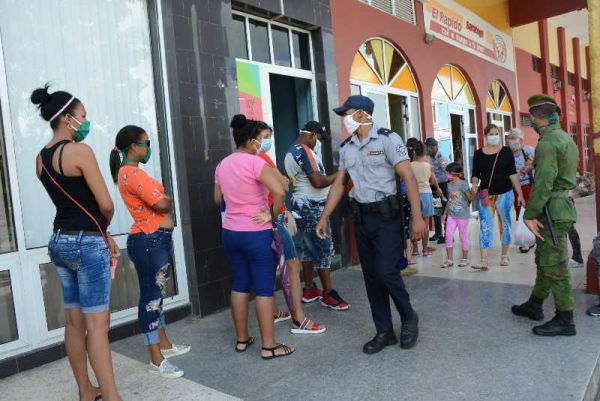
(Photo: Vicente Brito / Escambray).
Last August, Cuban President Miguel Díaz-Canel Bermúdez officially announced the government’s plan to confront hoarders, resellers and currency dealers.
Consequently, the court system in Sancti Spiritus, central Cuba, has so far filed 17 criminal proceedings related to this kind of events, said the president of the People’s Provincial Court (TPP, in Spanish), Amaro Cabrera Calero, during a recent appearance in local television.
According to Cabrera Calero, prison sentences represent the 25 per cent of the sanctions, while the other 75 correspond to secondary penalties (correctional work without imprisonment), combined with fines. “It was a group of people, mostly women, who were not employed”, he said.
In almost all cases, accessory sentences have included the confiscation of assets seized, added the TPP president, who also remarked that judicial matters were processed in accordance with the observance of due process, that is, the rights and guarantees of the parts.
The courts judged and acted accordingly, with severity and rigor, based on the social impact of the events within the circumstances the country is currently going through (health crisis generated by COVID-19, tightening of the United States blockade against Cuba ), and the rejection of the population towards those offenses.
 Escambray ENGLISH EDITION
Escambray ENGLISH EDITION





Escambray reserves the right to publish comments.